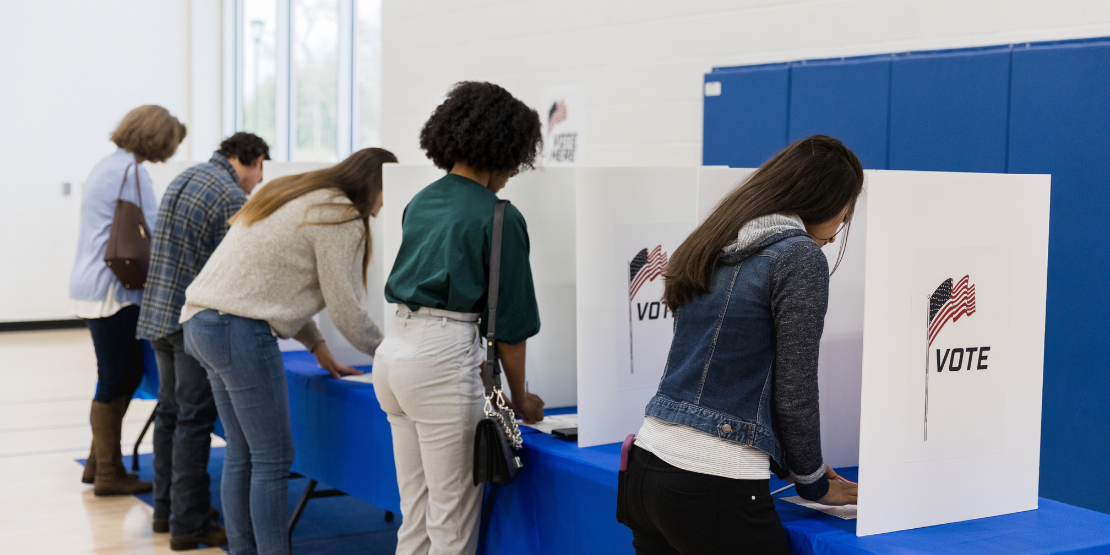What Investors Need to Know During an Election Year
Election years are a time of uncertainty and excitement for many people. There may be concerns with social and public policy, and the implications of legislature on the market and personal finances. Historically, elections haven’t had a particularly significant long-term impact one way or another on the market. Market fluctuations tend to come more from macroeconomic influences, for example, gross domestic product (GDP), inflation, employment numbers, and interest rates.
Despite the statistics, however, anxiety is a healthy response to uncertainty for many investors. Concerns may consist of worrying about the repercussions of a potential transition of power and how the market may react to unexpected news or policy changes. If you are worried about how your portfolio will perform during an election year, consider these five reasons why investors could benefit during election season.
History Shows Stocks Tend to Like Election Years
Examine the evidence: According to Investopedia, over the last 100 years, the average yearly return of the S&P is 10.26%. For long-term investors, this has been incredibly positive, indicating that changes in the seat of power have little to do with the fluctuations in the market. Better yet, based on data from Morningstar, since 1926, during presidential election years, stocks have generally beaten the S&P historical average, producing returns of around 11.6%. Evidence suggests that politics stays in political circles and doesn’t mingle with finance much.
Avoid Holding Your Cash Because of Election Outcome Anxiety
Elections tend to create an atmosphere of uncertainty, which becomes evident in how people manage their money. Stress, fear, and anxiety are normal responses to uncertainty. In election years, it is not unusual for investors to build up cash reserves instead of investing as they normally would because they are wary of how the market might react to the election results. However, hoarding cash may not be the most beneficial approach since, according to the Vanguard Group, elections have little impact on market volatility. There are several reasons not to sit on your cash, including:
- Cash grows far slower, or not at all, being held in a savings account, or stuffed under the mattress than if invested in the market.
- Inflation can decrease the purchasing power of cash that is just held instead of being invested.
Based on a 2024 T. Rowe Price analysis of data from Bloomberg Finance L.P., in the 24 presidential elections that took place between 1928 and 2023, the S&P averaged a return on investment of 11%. That could be a significant loss in gains if people chose to sit on their cash instead of investing it.
Stand Firm in Your Investing Decisions
Warren Buffett, Chairman and CEO of Berkshire Hathaway, advises investors not to watch the market too closely and don’t touch your interests if you can help it. The idea is that if you wait long enough, compounding can kick in — but you have to be patient and disciplined. Experiencing short-term fluctuations, no matter how large, are part of the process of long-term investment growth. Buffett says, “If they’re (investors) trying to buy and sell stocks and worry when they go down a little bit — and think they should maybe sell them when they go up, they’re not going to have very good results.” This strategy goes for uncertain election periods, too.
Potential For a Recession, But No Reason For Concern
A study conducted by the National Bureau of Economic Research (NBER) and published by T. Rowe Price found that there is potential for the risk of a recession that is higher in the 12 months following a presidential election, more so than in other years, particularly for a president’s first year in office. However, this is still not a reason to part ways with your investment interests. In the 20th century alone, there were 12 recessions, and they didn’t seem to impact great investors such as Warren Buffett and Charlie Munger.
Even patience-driven investors like Ronald James Read, the long-term value investor who generated substantial returns on the stock market over his life, didn’t seem to be impacted negatively by the recessions he lived through. History seems to consistently remind us that investing is about patience, smart decisions, diversification, and continuous learning. Nonetheless, there is always risk when it comes to investing, no matter how low-risk the investment might seem.
Consult Your Financial Professional
Investors that still feel reluctant to practice their normal investment strategy as the presidential election nears and passes should consider consulting a financial professional to determine how any political changes may or may not be impacting their portfolio or influencing their financial strategy and goals.
Important Disclosures:
The opinions voiced in this material are for general information only and are not intended to provide specific advice or recommendations for any individual.
Investing involves risks including possible loss of principal. No investment strategy or risk management technique can guarantee return or eliminate risk in all market environments. All indexes are unmanaged and cannot be invested into directly.
Past performance is no guarantee of future results.
All information is believed to be from reliable sources; however, LPL Financial makes no representation as to its completeness or accuracy.
This article was prepared by LPL Marketing Solutions.
LPL Tracking #617258



